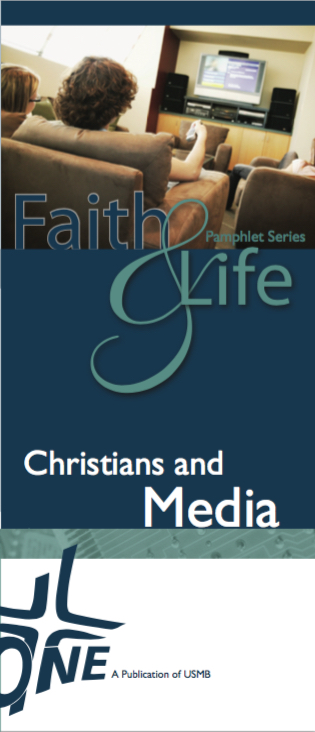- USMB FAMILY
- Who We Are
- Districts & Churches
- District Overview
- CHRISTIAN LEADER
- Title
- How do we live as we wait Christ’s return?I attended a Bible study recently where we looked at Matthew 24 and the end times. Most present subscribed to the pre-tribulation rapture position. I sensed quiet relief in their voices given they believe no Christian will have to endure the great tribulation. But no one commented on the possible times of harsh suffering and persecution American believers could face in the future. No one alluded to the estimated 70 million Christians martyred over the last two millennia, more than half in the 20th century. Todd Nettleton of Voice of the Martyrs describes persecution as “anytime that we’re forced to […]

- Always alert and awakeWar in the Middle East always sparks a renewed interest among Christians regarding what the Bible says about the end times, what theologians call the study of eschatology. In recent generations the formation of the state of Israel, the rising threat of nuclear Armageddon, the collapse of the USSR and other massive geo-political events have spurred interest again and again. And in a way, that’s a good thing. The eagerness to know more may be for the wrong reasons: Who is the antichrist? Is the rapture about to happen? But in Scripture, Jesus calls us again and again to be […]

- A party for Birch BayEach year, more than 10,000 people flock to Birch Bay, Washington, an unincorporated community along the northwest Washington coast, to shoot fireworks on July 4. Birch Bay is one of the only places to shoot fireworks on the beach without a permit, says Birch Bay Bible Community Church lead pastor Tim Thiessen. A county ordinance allows the legal discharging of fireworks July 3-5, and many people buy fireworks on the nearby Lummi Reservation and come to Birch Bay to shoot them off. It’s not uncommon for people to spend $5,000 to $10,000 on fireworks, Thiessen says. “Birch Bay gets overwhelmed […]

- WHAT WE DO
- Church Multiplication
- Church planting continues to be a crucial area of ministry for USMB. Studies show churches are the most effective way to bring more people into the family of God. Partnering with local churches, districts, USMB and Multiply to plant churches, is not just a good thing to do, we must do it.Read More

- Disciple-Making
- USMB is actively involved in helping provide our churches with dynamic ideas, resources and programs for encouraging people to become fully-devoted followers of Jesus. Jesus said, “Go and make disciples….” We strive to facilitate that profound command. READ MORE about Disciple-making.Read More

- Leadership Development
- USMB’s leadership development strategy stems from the real need to actively develop more leaders within the local church who are living on mission in the workplace and in their communities and to fulfill the demand for additional pastors, church planters and missionaries. READ MORE about Leadership Development opportunities.Read More

- Leadership Development
- RESOURCES
- EVENTS
- CONTACT
- CHURCHES
- JOBS
- Disciple-Making
-
- Church Multiplication

Increasing Impact Together
T 800-257-0515
Email: offices@usmb.org
USMB
PO Box 20200 Wichita, KS 67208
PHONE: 800-257-0515 NEWSLETTER: SIGN UP
 “Whatever is pure—if anything is excellent or praiseworthy—think about such things” Phil.4:8.
“Whatever is pure—if anything is excellent or praiseworthy—think about such things” Phil.4:8.
Our world
How are Jesus followers to maintain a pure lifestyle in the midst of a complicated barrage of 21st-century media and entertainment? Fifty years ago choices were simpler. We listened to radio, watched television and read books, magazines and newspapers. Today, even young children are exposed to types of media that leave an older generation confused and anxious.
Now media sources include on-demand TV, streaming movies, digital music, ebooks, websites, video games and social media. Much of our viewing and listening is interactive, internet-based and easily accessible through digital devices. These “new media” create opportunities for both good and bad uses. What is OK for Jesus followers and what's not?
Paul’s world
Shortly after Christ’s resurrection, the Apostle Paul wrote a letter to Christians in the city of Corinth where many believers thought eating meat sacrificed to idols in pagan temples was evil. Paul, however, advocated an attitude of freedom and instructed the believers to “eat anything sold in the meat market without raising questions of conscience, for, ‘The earth is the Lord’s, and everything in it’” (1 Cor. 10:25). Paul supported a broad sense of personal liberty with one exception: “No one should seek their own good, but the good of others” (1 Cor. 10:24).
Paul teaches that believers have great freedom, but that restraint should be exercised if the freedom causes another person to stumble (1 Cor. 8:9; 10:28). One of the most important things a follower of Christ must do is examine how his or her action will impact others in the faith family.
Elsewhere, Paul says to believers, “Whatever is true, whatever is noble, whatever is right, whatever is pure, whatever is lovely, whatever is admirable—if anything is excellent or praiseworthy—think about such things” (Phil. 4:8). Paul's teaching clearly directs us to those things that are wholesome and good for our relationship with God. Both our own spirit and the Bible tell us that certain things break our fellowship with God, just like some behaviors and ways of living break our relationship with the people we love here on earth.
Good or bad?
Can the Internet be used for evil? Certainly. Can cable, satellite and fiber-optic signals provide us with good and wholesome content? Absolutely. It’s tempting to think that various forms of media are evil, but like meat in Paul’s day, television, websites, social media and the like are not good or bad. Media are neutral. It’s what we do with them that serves a good or bad function.
So if media are neutral, does the Bible give us any guidelines regarding what we should or should not watch or listen to? In another letter to Christians who were struggling in their walk with God, Paul encourages them to "walk as children of the light—for the fruit of the light consists in all goodness, righteousness, and truth—trying to learn what is pleasing to the Lord" (Eph. 5:8-10). Pleasing God should be the standard for how we choose to live, including what we watch and to what we listen.
In Psalm 101, King David proclaims his desire to live a blameless life. How will this happen? He vows, “I will not look with approval on anything that is vile.” He continues, “I hate what faithless people do; I will have no part in it. The perverse of heart shall be far from me; I will have nothing to do with what is evil…. My eyes will be on the faithful in the land….”
Questions to ask
The following questions may be helpful in determining whether what we watch and listen to is beneficial.
- Is the material violent? Movies and video games filled with gratuitous violence are often detrimental, especially to young, impressionable viewers.
- Is the material exploitative? Websites, magazines and books that demean women and other marginalized groups are never acceptable. Pornography, both hard and soft, is especially prevalent today and is exploitive of both men and women and damaging to God's design for male/female relationships.
- Does the material use crude humor? Comedy that relies on offensive, obscene or inappropriate humor runs counter to the Christian lifestyle.
- Is the material addictive? Social media and video games often lead to addictions that disrupt normal patterns of life and human relationships.
- Does the material encourage harmful behavior? Any form of media that glorifies violence, substance abuse and profanity can lead to risky activity, particularly in children and teens.
- How much time is spent with the material? Balance is critical in all areas of life. Too much time spent playing video games, engaging in social media or watching movies will take time from other priorities.
- Does the material create a barrrier between us and our brothers and sisters? Mennonite Brethren believe strongly that our faith family can help us discern appropriate standards of belief and conduct. Living as an accountable community with one another keeps us from becoming isolated and making decisions in a relational vacuum.
Scripture references: Prov. 23:7; Matt. 5:29-30; Rom. 12:9; 1 Cor. 6:13-16, 10:31; Gal. 5:8-10, 25; Phil. 4:8; Col. 3:1-17; 1 Thess. 4:1-8
Whatever you do
Let's remember Paul's final instruction to the Corinthians: "So whether you eat or drink or whatever you do, do it all for the glory of God" (1 Cor. 10:31). We might do well to post this verse on every bookshelf, game system, computer screen, television and mobile device we own.
Published under the sponsorship of the USMB Board of Faith and Life, 2012. For additional copies, contact U.S. Conference, 7348 W. 21st Suite 115, Wichita, KS 67205. Phone: 1-800-257-0515.
Click here for a printable brochure



